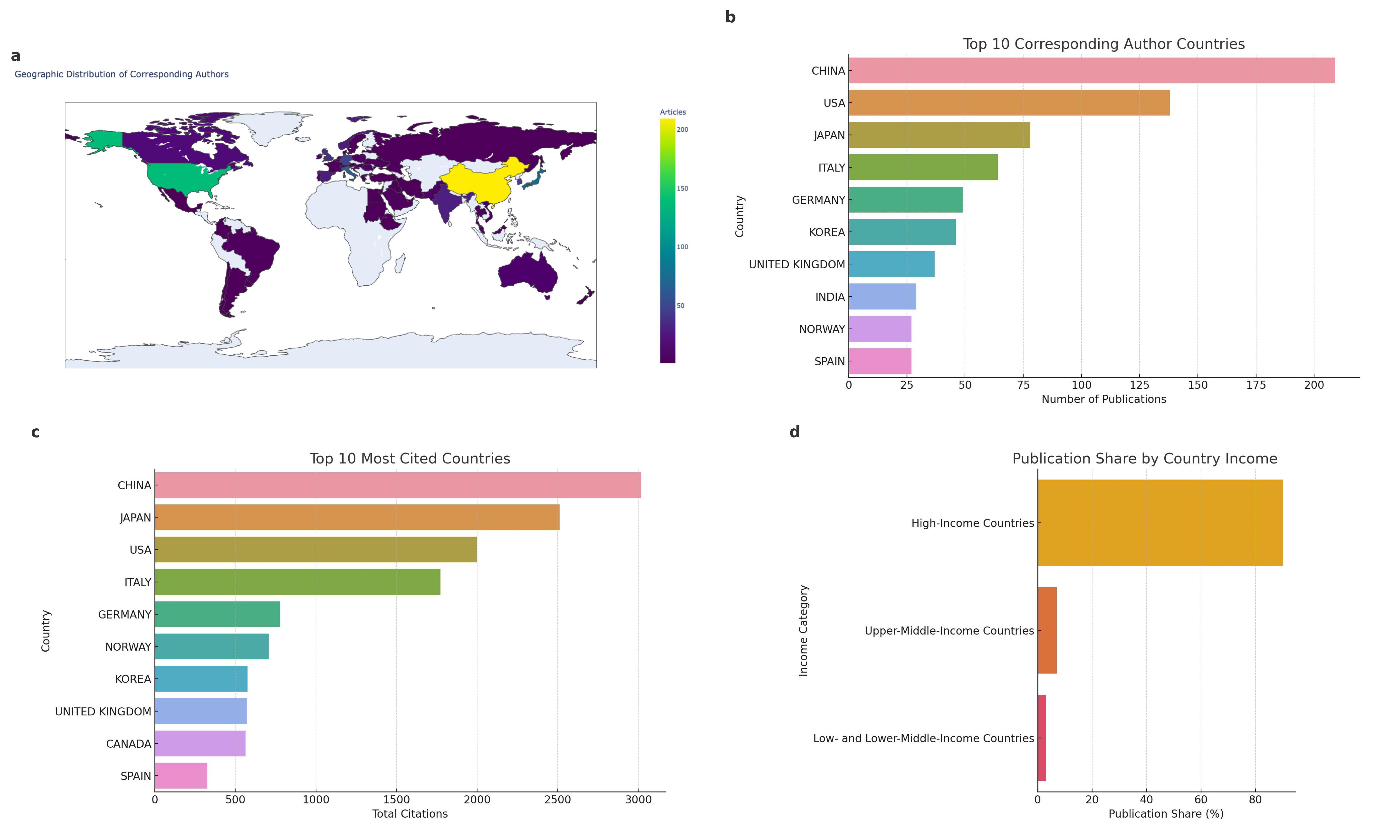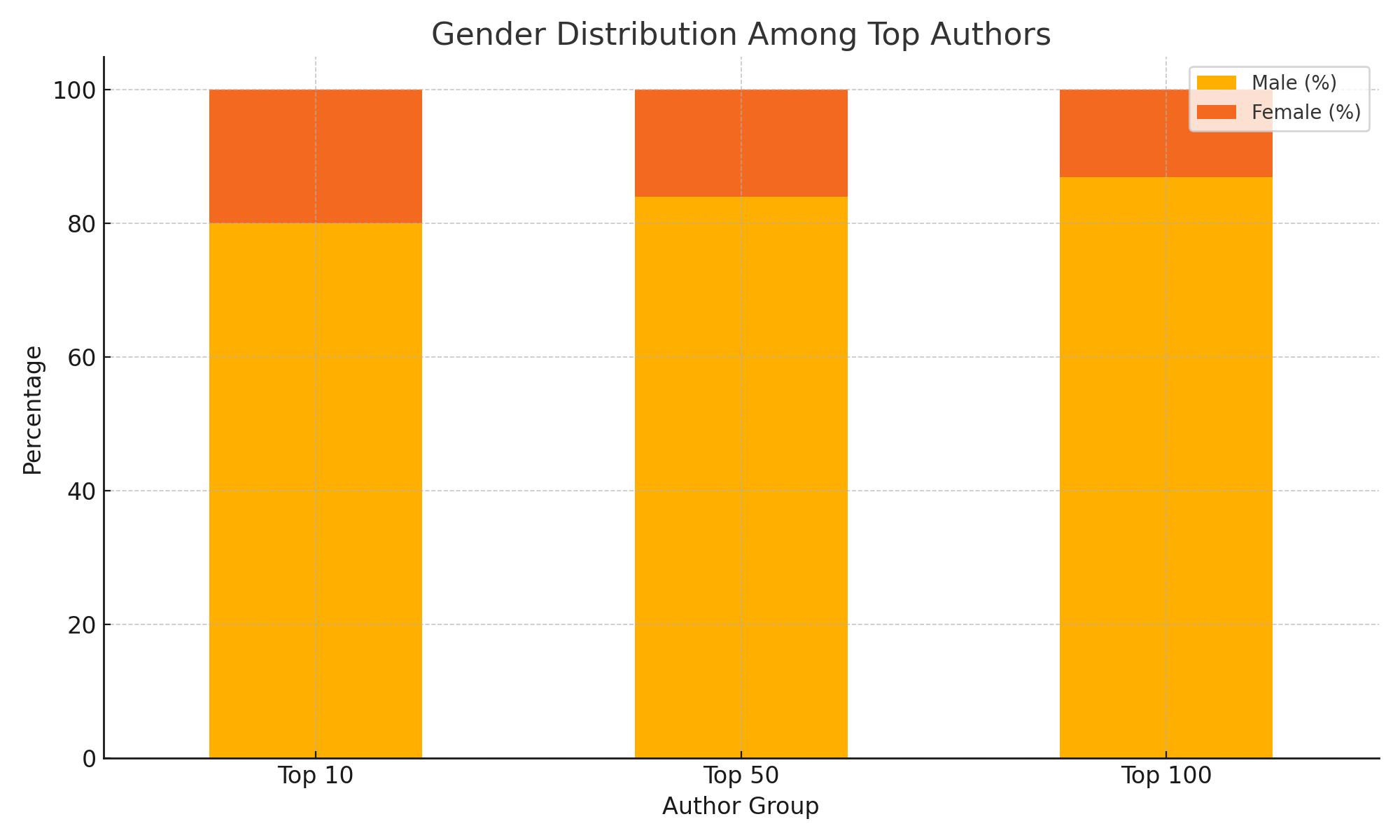Sunday Poster Session
Category: Colon
P0285 - Drawing the Map of AI in Colonoscopy: Global Trends, Gender Imbalance, and Low-Income Country Marginalization

Renan Prado, MD
Cleveland Clinic Foundation
Cleveland, OH
Presenting Author(s)
1Cleveland Clinic Foundation, Cleveland, OH; 2University of California San Diego, San Diego, CA; 3Gastroenterology and Hepatology, Cleveland Clinic, Cleveland, OH; 4Department of Internal Medicine, Cleveland Clinic, Cleveland, OH
Introduction:
The application of artificial intelligence (AI) in colonoscopy has emerged as a transformative innovation, enhancing diagnostic accuracy and procedural outcomes. This bibliometric analysis evaluates the global distribution, authorship trends, and publication disparities in this rapidly expanding field.
Methods:
A total of 929 publications from 323 sources spanning 1990 to 2026 were analyzed using Bibliometrix R software based on Web of Science Core Collection database. Country-level productivity, corresponding authorship, and gender representation among the top-cited authors were examined. Country income classification followed the World Bank criteria.
Results:
Global research output on AI in colonoscopy has expanded rapidly since 2017. China leads globally with 1,199 publications, accounting for the highest scientific output in AI-colonoscopy research, followed by the United States (930), Italy (474), and Japan (469). These four countries represent a substantial share of global contributions. Among institutions, Showa University (Japan), University of Oslo (Norway), Humanitas University (Italy), Wuhan University (China) and Harvard Medical School (USA) were top contributors. The most frequent publication venues were Endoscopy,Gastrointestinal Endoscopy, and Surgical Endoscopy.
Among the top 10 most prolific authors, preliminary gender assignment suggests a male predominance (80% male, 20% female). This imbalance persists across the top 50 (84% male) and top 100 (87% male) authors, underscoring persistent gender disparities in authorship.
High-income countries overwhelmingly dominate the research landscape, with low- and middle-income countries contributing fewer than 5% of total publications. The most prestigious countries in terms of global citation impact include the United States, China, and Germany. High-income countries accounted for over 90% of publications, while low- and lower-middle-income countries represented only 3%.
Discussion:
Global AI-colonoscopy research is marked by unequal participation, with gender imbalance and economic disparities limiting diversity in authorship. While research output is increasing rapidly, greater inclusion of women and investigators from low-income regions is critical to ensure equity in future innovations. As technological advancements accelerate, these geographic disparities may become even more pronounced unless proactive efforts are made to democratize access to research infrastructure and collaborative opportunities.

Figure: Geographic Trend in AI Colonoscopy Studies

Figure: Disparities: Male x Female in AI Colonoscopy Publications
Disclosures:
Renan Prado indicated no relevant financial relationships.
Melissa Lou Silva indicated no relevant financial relationships.
Arjun Chatterjee indicated no relevant financial relationships.
Michael Cymbal indicated no relevant financial relationships.
Leandro Sierra indicated no relevant financial relationships.
Renan Prado, MD1, Melissa Lou Silva, MD2, Arjun Chatterjee, MD3, Michael Cymbal, DO1, Leandro Sierra, MD4. P0285 - Drawing the Map of AI in Colonoscopy: Global Trends, Gender Imbalance, and Low-Income Country Marginalization, ACG 2025 Annual Scientific Meeting Abstracts. Phoenix, AZ: American College of Gastroenterology.
